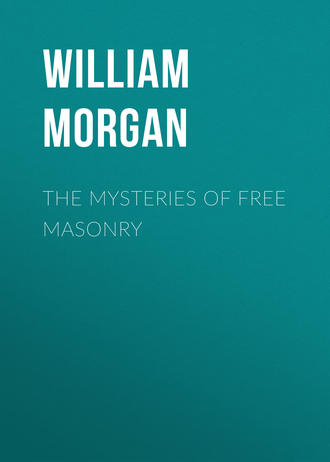The Mysteries of Free Masonry
 полная версия
полная версияThe Mysteries of Free Masonry
Жанр: книги по психологиизарубежная классиказарубежная старинная литературазарубежная психологиякниги по философиизарубежная религиозная литература
Язык: Английский
Год издания: 2019
Добавлена:
Настройки чтения
Размер шрифта
Высота строк
Поля

